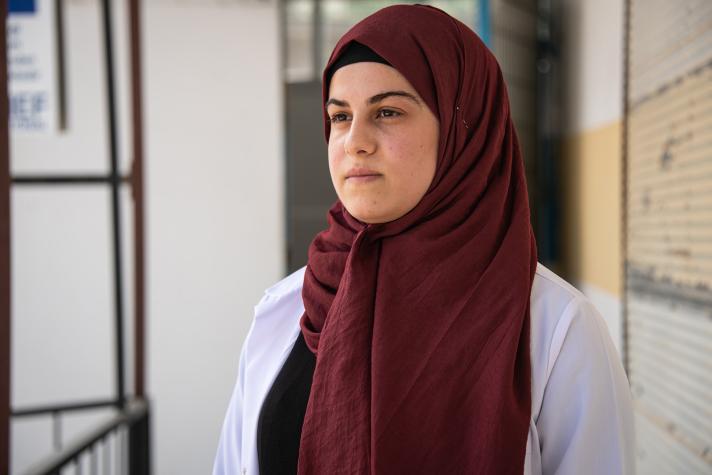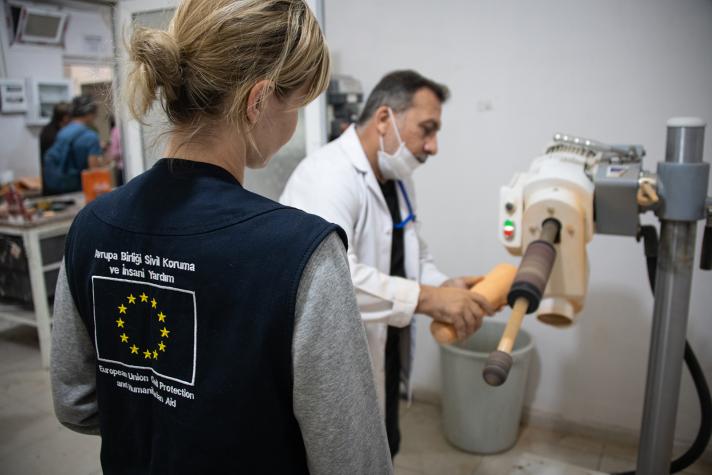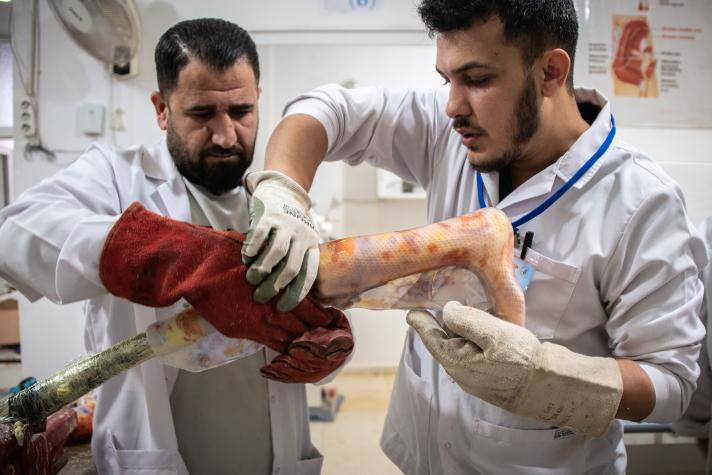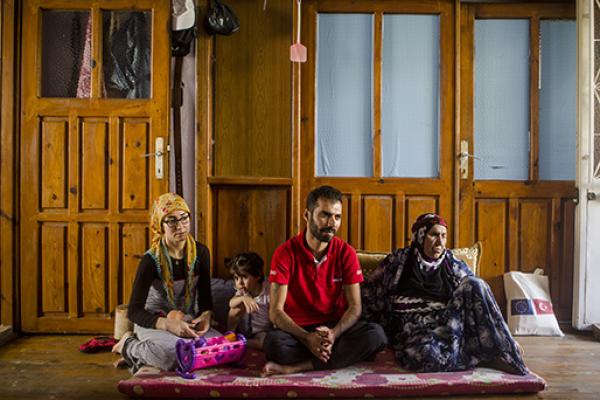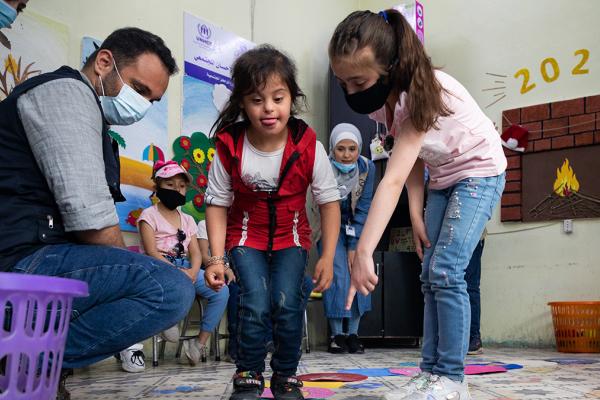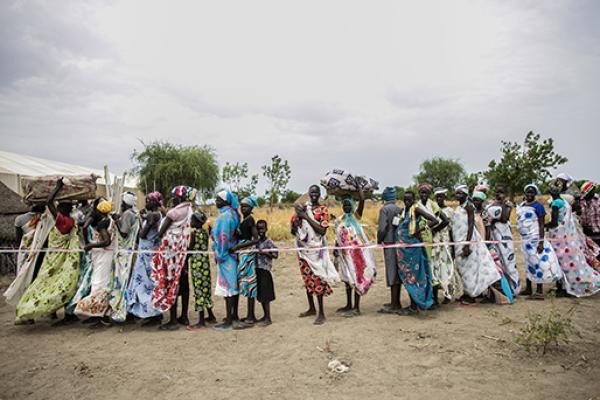Muna lost one of her legs at the age of 3. After the war in Syria broke out, her family left for Türkiye so she could get a new prosthetic leg. Now, at 23-years-old, Muna works as a physiotherapist at the very EU-funded centre where she received her artificial limb.
Muna was walking the streets of her hometown Hama, Syria, when a car hit her in 2003. 3 years old at the time, her leg was amputated below the knee.
She received treatment and a prosthesis that allowed her to walk again, but then the war started. For 2 years, she had to continue using the same device, even though she had long outgrown it.
“The prosthetic was short and small for my body. I had difficulties walking, but I couldn’t change it,” she says. One day, on the way to school, her prothesis broke. After this, her family came to Reyhanlı, Türkiye.
The same year, in 2013, Muna got a new prosthetic leg at a rehabilitation centre in Reyhanlı, run by the National Syrian Project for Prosthetic Limbs (NSPPL) with support from Relief International.
“If I didn't wear a prosthesis, I couldn't walk, I wouldn't be able to go to high school and university. Thanks to this centre, I was really motivated. I want to do better, and support other people like me.”
With her new prosthesis came mobility, and with mobility came success. Muna dreamt of becoming a physiotherapist, and went to university, determined to make her dream come true.
After she graduated, she saw a job advertisement - at the same centre where she got her first prosthetic leg in Türkiye, which is now supported with EU humanitarian funding. She has been working there for nearly a year now.
“I can feel the pain when a patient says: ‘It hurts here’. Because I went through a similar process”, says Muna.
When new patients arrive, she helps them learn to use their new prosthetic devices.
“I felt very weak after I had the car accident. Then I lost my brother in the war. But with the support of my family, now I am stronger, and I feel successful. And I love my job.”
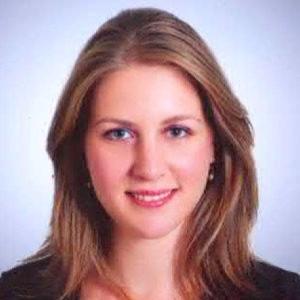
Story by Bahar Bakir Yurdakul, Information and Communication Assistant in Ankara, EU Civil Protection and Humanitarian Aid Operations.
@ECHO_Europe
Publication date: 01/12/2023

